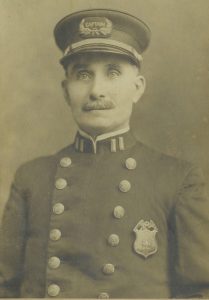Failure to Give Timely Written Notice of Non-Renewal Requires Reinstatement of Non-Tenured New Jersey Educator
New Jersey employment law provides that non-tenured educators must receive written notice that their employment contracts will not be renewed by May 15th or their contracts will be deemed to be renewed for the coming school year. A New Jersey appeals court recently issued a decision examining the procedure and consequences of the non-renewal of an assistant principal after failing to give her the required timely written notice in the case of Adeyin vs. Board of Education of the City of Orange.
Background
Ehimwenma Adeyin was a non-tenured assistant principal at Rosa Parks Community School in Orange, New Jersey. She began work in 2023, and her contract was renewed for the 2023-2024 school year. She was permitted to participate in a two-year program to obtain a certificate from the New Jersey Department of Education for the position of principal.
 New Jersey Lawyers Blog
New Jersey Lawyers Blog



 they must be paid. The Supreme Court of New Jersey considered whether and under what circumstances “commissions” are considered “wages” protected by the Wage Payment Law.
they must be paid. The Supreme Court of New Jersey considered whether and under what circumstances “commissions” are considered “wages” protected by the Wage Payment Law. accommodations available so that pregnant or breastfeeding employees and new mothers can perform their jobs. It prohibits retaliation against employees who request such accommodations. The New Jersey Law Against Discrimination gives a non-exhaustive list of such reasonable accommodations: “bathroom breaks, breaks for increased water intake, periodic rest, assistance with manual labor, job restructuring or modified work schedules, and temporary transfers to less strenuous or hazardous work.”
accommodations available so that pregnant or breastfeeding employees and new mothers can perform their jobs. It prohibits retaliation against employees who request such accommodations. The New Jersey Law Against Discrimination gives a non-exhaustive list of such reasonable accommodations: “bathroom breaks, breaks for increased water intake, periodic rest, assistance with manual labor, job restructuring or modified work schedules, and temporary transfers to less strenuous or hazardous work.” process to ensure that New Jersians are served by only the best law enforcement officers and firefighters.
process to ensure that New Jersians are served by only the best law enforcement officers and firefighters.


